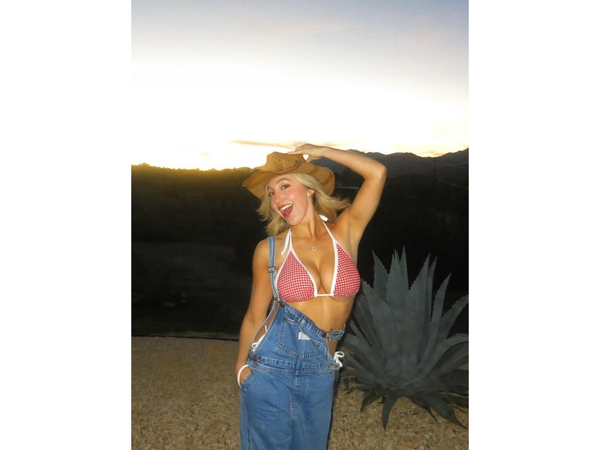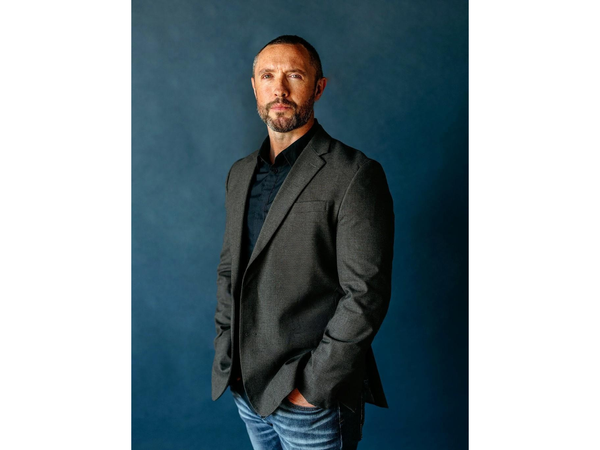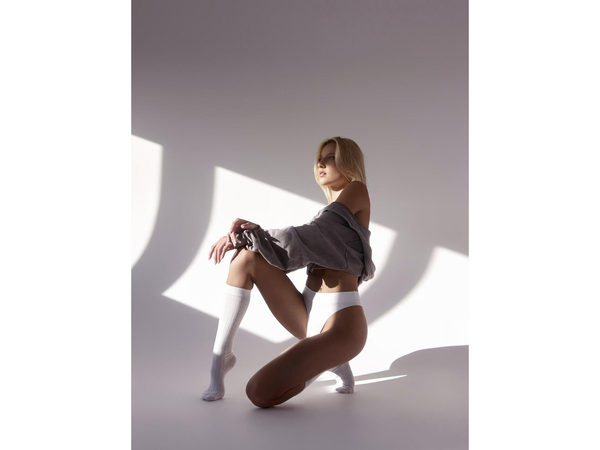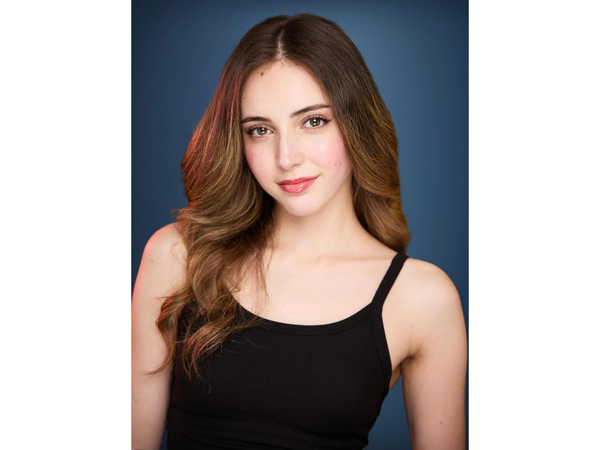MITZI AKAHA TALKS CHAPERONE
"I have grown a lot as a human by acting"
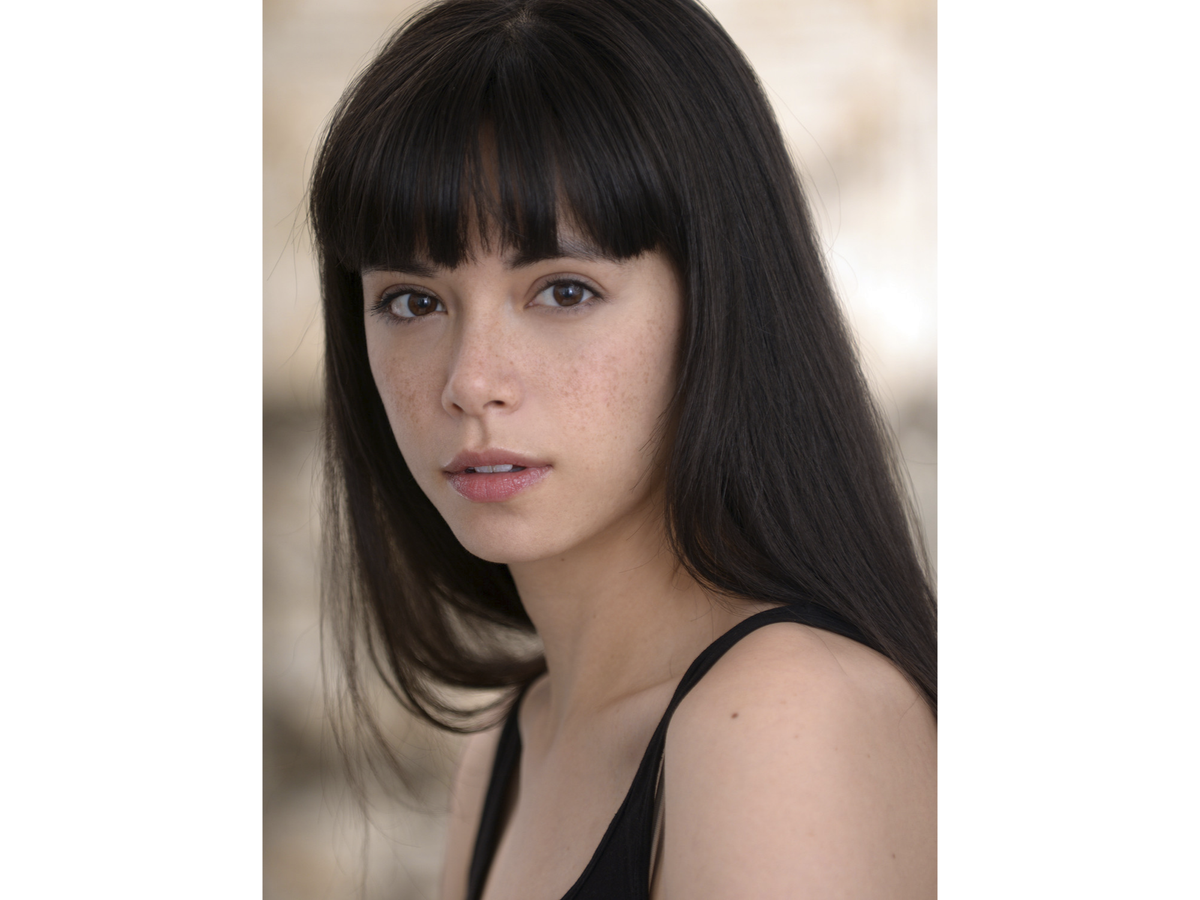
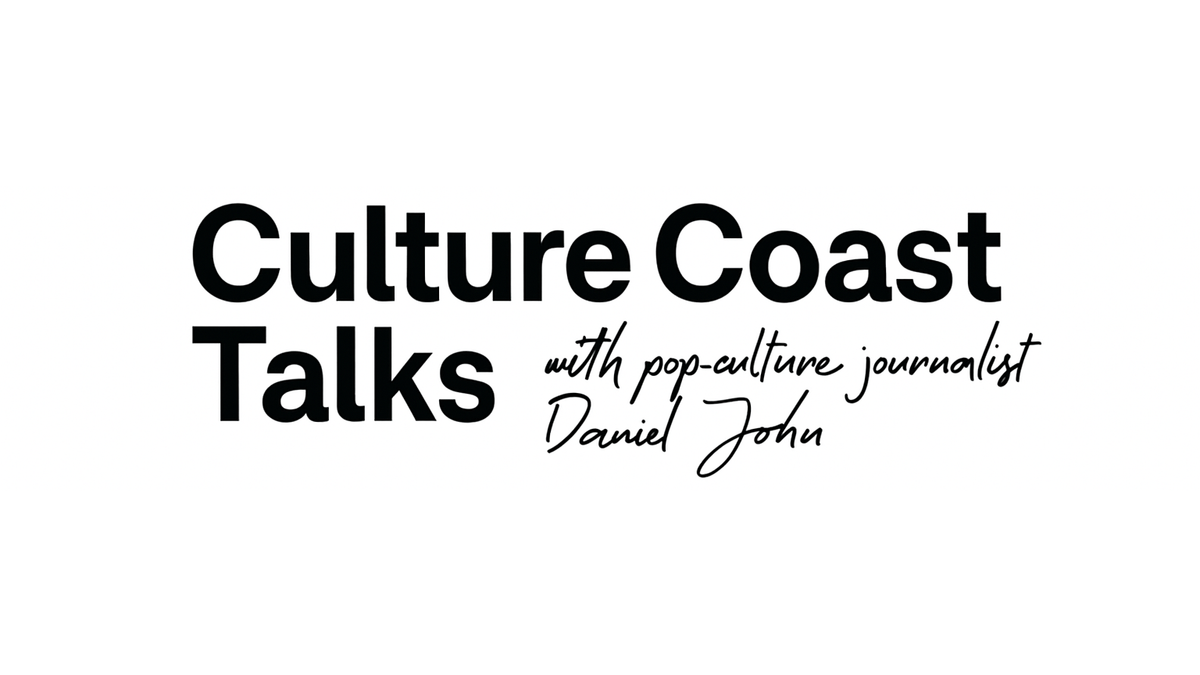
When did you first find your way into acting?
I must thank an economic crisis for my career, in that my friends were all getting laid off from their fancy new jobs as I was about to enter the workforce, and I was like, I have no skills, I’m screwed, and ran away to Japan. Japan was a magical kind of wonderland for me, where anything felt possible, where I was foreign but not foreign-foreign, I’m half-Japanese, and I had the freedom to experiment and reinvent myself in a way I would not have had in the US. That is, I think, despite being a natural ham who speaks in voices and wants everyone around me laughing the only way I would’ve ever said yes to modeling and then to being on TV. Acting was something only superhumanly beautiful and famous people did and I was a broody intellectual, I'm still exploring that, but I kept getting commercials, my first one for a men’s razor where I make eyes at a big Japanese actor as he walks by, and the whole process made me so giddy. My first TV role came a couple of years in, playing various characters on a weekly NHK-sketch show teaching Japanese comedians English in New York City. What it lacked in salary it made up for in very low stakes that someone just starting out needs to feel free to have fun, and fail, and to fluff a resume as a fresh face. And the years continue to pass as I just keep saying yes to this thing that bring me so much joy, and praying that no one will notice I’m not supposed to be here.
You mention modeling, was that the very first thing you did creatively?
I was working as a writer in Tokyo, and a magazine sent me out to cover a music festival just outside of the city. It’s been long enough now I can admit I was a few drinks deep at said festival when someone approached me about working for Abercrombie & Fitch. Now you might be like, Mitzi, what does this have to do with anything, but if you’ve been to their store in Tokyo, you know that everyone who works there is hot and covered in oil. I did not know that, luckily, and I needed money, so I interviewed, got the job, and plop, I was in that world. It’s kind of a thing in Japan if you’re foreign or mixed-race Japanese, and of a certain age and stature, that you’ll be asked to model, so I’d done it here and there in exchange for free haircuts by stylists in training, or new brands in exchange for clothes, and when I finally met an agent I just kept going with it. It was so silly. But I knew even as it was happening that it also offered me the invaluable benefit of Japanese language practice, for pretty good pay, with really cool people and sometimes really cool clothes, and other times really awful clothes with really strange people and great stories after as well as a look into Japanese work culture, which I wouldn’t have been invited to see any other way, so as silly as it was, I felt so lucky to do it. It was a bit like a dream, really.
How has your creative work helped you discover your voice and connect with a sense of community?
For a long time, I thought art was a solo venture, something intended only for the artist and the thing created, but then there was always this urge to share it and I didn't understand what drove it. "Here it is", I guess, was the kind of attitude I had about it, like, I do not know what you’ll get out of this but my brain baked it and it riles me up, so, kind of like when a cat drags some dead thing home and leaves it at your front door, which they unfortunately want to do. It feels deeply personal, and a little dangerous, and that’s just it, I think. We are working to get past the noise of structure and propriety and facade to the soft stuff within the bones, the basest part of the brain, the bile. But I grew up an athlete, a tomboy, so for all the years of drawing and writing obsessively, doing inky portraits of mopey girls and story after fictional story of another strained family dynamic, I didn’t have any awareness that I was indirectly, abstractly, and thus safely and in a controlled way, because I could hide behind the aesthetics, exposing my humanity. Acting is terrifying because it removes that degree of separation. I am the instrument. When I moved to New York from Japan, I moved with the intention of engaging with the world in a more meaningful way, and I thought acting could help me do that. My first, and only, acting teacher here said something I’ll always come back to, “At your most personal, you are the most universal” and dang it! It’s true. I’ve grown a lot as a human by acting. I don’t know any community that is tighter knit than a group of actors, so dedicated to the exploration and, like, sanctity of experience and feelings. We are like pigs to mud in it. And as far as my voice, I don’t think about it much. I just try to be honest.
I am really impressed by your performance in 'Chaperone'. It’s rare to see a character making questionable choices still come across as just human rather than unlikable, which you capture so well by grounding her in her own reality?
Oh, thank you! To be honest, I can see on an intellectual level how Misha is a so-called antihero, but I was on her side from the beginning, because I knew I was auditioning for her. It was the only way through that made sense to me, and still, just like Misha, I struggle to understand why everyone has such a problem with Misha. She is stubborn, sure, but so am I, and perhaps a bit self-righteous, who doesn’t like a strong point of view? But at least when we meet her, she’s not doing anyone harm, and is subject to such criticism from the people closest to her, so she’s lonely. All anyone wants in life is community. A group of people who accept them for who they are, what they like or whom they like. Life is hard enough, but it’s also, almost, that simple.
What do you think meeting Jake meant for her?
Jake shows up, and he thinks Misha’s awesome. And that feels awesome, to have another person think you’re awesome for everything you already are. It is extremely validating for Misha to have Jake, who’s not just any nineteen-year-old boy but an extremely motivated, gentle and dutiful mother’s-dream of a nineteen-year-old boy, regard her so highly. And I think that feels so awesome that she lets herself blur out the logistics. I mean, age is an abstract, too, no? I also saw such vibrancy and play in her character, and that is what I really hooked into. She could be seen as lazy, sure, or reckless, but she could also be onto something with her counter-culture way of being. It takes a lot of awareness to go against the grain, perhaps even more awareness than it does to do life “right”, and after the pandemic especially, I myself came to see all these societal structures and expectations as so abstract, start school at age four, learn algebra at fourteen, kiss a boy by then or be a loser, aim for ivy-league, become or marry a doctor, buy a house with a pretty fence your neighbors will swoon over, it is all a story we tell ourselves, it is all made up. And arguing that unpopular point, and then maybe or maybe not, depending on who you ask, losing said argument in an unexpectedly tragic way, with Misha’s characteristic charm driving the action, that was so delicious to me.
Is finding a connection to the character important for you to fully embody her?
I knew that in order to do Misha justice, I would have to stand by her decisions. All of us, for all of our faults and sinful behavior, are able to rationalize just about anything when we’re the ones doing it, so when I started reading, I started from her head and just believed that everything I was doing was well-reasoned and sane. I do have to do it that way, with empathy. That’s the point of the job, I think, of storytelling in general. Humanizing our experience for all of its discordant messiness so we don’t let our flaws and mistakes eat us alive. And a character like Misha is such a gift because there is so much nuance in her particular pain and frustration, and in the statement her sense of adversity makes about where we are as young people in an antiquated social system that leaves so little room for nuance. In work and in life, I always try to lead with curiosity, and I think that truly good listening will always lead to empathy.
The film leaves us on an ambiguous note. As Misha looks over to Jake and sees the impact she’s had, it’s unclear whether she’ll change or stay true to what she wants. Do you think she's walking away?
I think it would do viewers a disservice to sway them one way or another, as I so like to hear where their hopes and judgments lead them, but I will say that despite what Hollywood tells us, true change requires more than a few apologies and a new hairstyle, especially when you have gone your whole life woefully unaware of your own sense of agency. It is a start though.
Pursuing life as either an actor or a model can, and will, come with a lot of pressures and expectations, whether put on you by others or by yourself. What do you do to maintain a healthy attitude?
I judged myself pretty harshly for being just a model at first. It was “lazy”, a waste of my degree, vain, or at least perceived as such. As soon as you say you are a model, I swear people look you up and down assessing, "Are you?" So I would make a point of showing I hadn’t chosen it so much as it chose me. That I was as confused as they were, but saying it that way made me feel awful, like, I’m dedicating my life to something I haven’t chosen? Eventually I discovered that if I removed the label and instead said “I model”, as if it’s just a thing I do, it sat better with me. I don’t know if others scrutinized me less, but I started seeing the job differently, and what’s more, I stopped seeing the whole of my person as having to fit into a single word that everyone, not least of all me, had opinions about. I model, which is to say, sometimes I get paid to take Japanese lessons in cool clothes, and I also act, and draw, for myself if I want to, and for others, in technically precise and comic forms, or I write essays, or bad poetry or I do none of those things. Rejection is already ninety percent of these jobs, so it was especially helpful, life-saving, to reframe my career from labels into actions, because if you hitch your identity to something you can’t control, as I have and many people do, if you equate your worthiness to how much something loves you back, you will suffer. I try to give myself the space to see everything clearly, "Do I still love it?", and as long as I do, I'll keep doing it.
One thing you and Misha at least don’t seem to share is work ambition, you’re constantly taking on new, interesting roles, at a pace I can barely keep up with. This wasn’t even the film we were first supposed to talk about?
I really don’t think about ambition much. It might come up in terms of how potential employers see me, “Is she “relevant?”, but I think more than that, the difference between me and Misha is that I am more interested in life. I love people, the more different from me the better, and I love learning new things, I want to try everything once. Acting as a career folds nicely into that ethos, if a role feels like a new experience to me, a new way of seeing, I’m interested. Saying that, I can not help but think about my dad, who passed away at the end of 2021. It was a few months before I shot 'Herd', the film that we were supposed to talk about and a year before 'Chaperone', and it completely changed how I show up for work, for people, to life. My dad was abnormally successful, internationally renowned, deeply admired, proof one could become full on ambition. But the last months of his life were spent shaking with regret, he never let himself be known. How many people spend the final moments of their lives this way? Neither of my parents wanted me to be an actor, and I got way more attention for my “academic” pursuits and let’s face it, acting is, in a way, developmentally regressive, a thing people tell you to “grow up” from until you’ve reached Meryl Streep-level success. Growing up is antithetical to the job, it’s our job to remain curious and open where others have been worn down, and our sense of wonder and vulnerability is what makes movies so powerful in the first place. It was what my dad sought as he realized his life was about to end, holding my hand, telling me the sometimes ugly and embarrassing but wholly beautiful true story of his life. Pursuing this career requires a lot of stubbornness and resolve, and mine is now based in the conviction that the only life worth living is this kind of a life and the work I most want to do is that which honors an honest attempt at it.
Are there any other particular films you’re excited for people to see?
There’s a short that premiered at this year’s Sundance that I made with my best friends in the whole world called 'The Looming Cloud', in which we’re siblings navigating our mom’s death in the Instagram age, and I am incredibly proud of it. It’s not out yet but has been doing festival rounds, and off the success of that, the writer-director Matthew Tyler, whom I sometimes affectionately call Dad, has been developing two features with his partner Connie Shi, my “sister”, that are getting big-time produced and will no doubt blow our minds and make our world better, so I’m excited for people to see those! Another short, 'The Shadow Wrangler', just premiered at Florida Film Festival and is one of the most creative and sumptuous pieces of art I have been honored to have my face in, and it, too, may come to a festival near you. That writer-director, and lead actor, Grace Rex is such a confident and engaging voice, and she’s delightful in the show 'Severance', a project I am not in but am excited for people to see if they haven’t yet. It’s perfect. On which note, including films I'm not in, all the films of Ozu, Östlund, Paul Thomas Anderson and Lanthimos, especially the newest one I haven’t seen yet but comes out this month!

